General Motors has offered diesel-powered cars all over the world sans North America over the years, but things are going to change next year when the company launches the Chevy Cruze diesel for the 2014 model year. And from the sound of things, advocates of oil-burners are going to be in for a treat. As will everyone who loves extraordinary fuel economy numbers.
From the little information General Motors has gone official with, we know that this Cruze will cradle an all-new 2.0L turbodiesel engine with a global engineering pedigree. Pretty much everyone is involved, as it’s being co-developed by GM’s Powertrain teams in Torino, Italy (Turin) and Pontiac, Michigan. GM engineers from Russelsheim, Germany are supporting the project by developing the accessory drive, acoustic cover and other specialized components. Additionally, the validation process at GM’s Lordstown, Ohio plant — where the U.S.-spec Cruze is built — began this past fall.
Now, going beyond the official record, we have learned that the Cruze diesel could very well end up being called the Cruze Eco-D, which is fitting. It’s also expected to come along with the Cruze’s planned mid-cycle refresh.
The biggest selling point for the Cruze Eco-D is this all-new engine. And while its power figures are still in the dark for the time being, engineers have targeted it for a 700-mile highway cruising range before needing to refuel. The Cruze Eco-D will have a 14 gallon tank. Do some math, and you’ll quickly realize that this range translates to a Prius-fighting 50 mpg on the highway. The official EPA ratings are still pending, however. To note, the VW Jetta TDI is rated at 42 mpg on the highway. Sounds like a knockout punch to us.

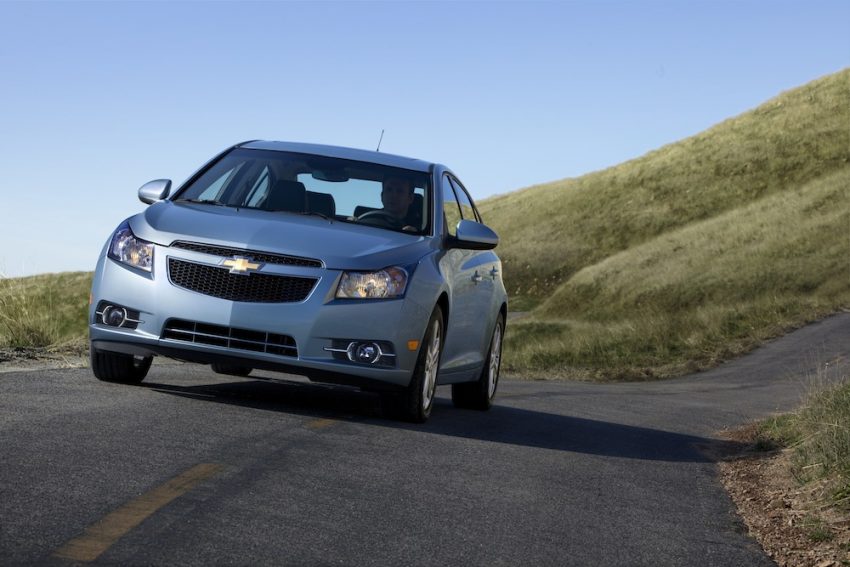

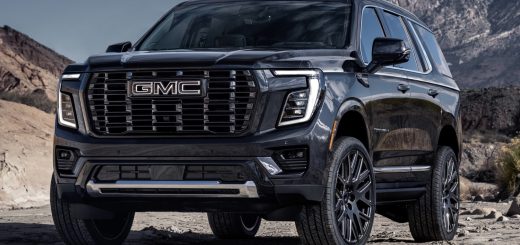
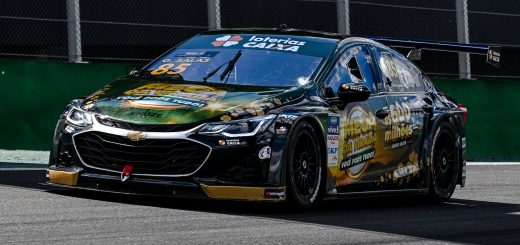
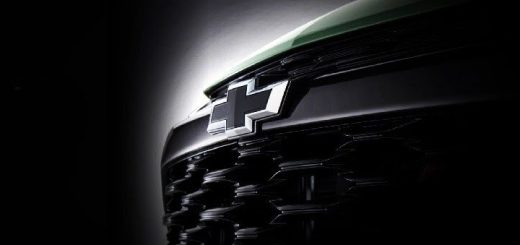
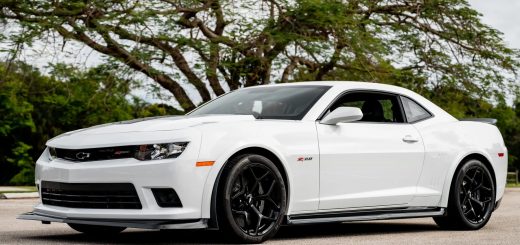
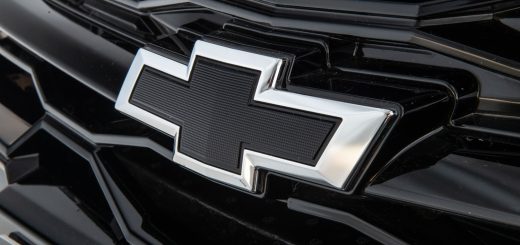





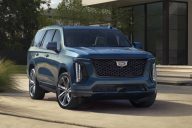
Comments
I just hope the mid-cycle refresh involves some LEDs in the front and rear
Leds would look so nice and maybe a bigger change to the back end
I hope it’s as fun to drive as the Jetta TDI it delivers this “knock out punch” to.
I hope there is a 6spd manual and a 2 lt pkg offered
I want the Cruze Diesel Wagon. That would have me camped out at a dealership waiting for the truck to arrive.
Me too! I would be in line right behind you. I think it would really compete with the Jetta then!
I don’t like diesels , I don’t like the noise they make and they are more polluting the environment than gas even with DPF .
Also maintenance cost are higher .
Never asked Your selfs why the WTCC don’t use diesels any more ?
The Cruze Diesel isn’t for everyone, just like many who won’t buy a Corvette because it can’t carry children or dogs. But a Diesel engine can use bio-fuel, such that one can feed it processed cooking oil, who doesn’t pollute as much, and smells like fried potatoes or even popcorn.
The noise problem will be resolved, since GM has built Diesel sedans before. I wish Gm the best of luck with this vehicle!
Seriously? You haven’t been in a modern diesel car then. Yes, trucks are still noisy but the euro designed, small displacement diesels used everywhere BUT the USA are absolutely fantastic. You’d be hard pressed to know that the car was a diesel if you were a passenger and no one told you.
Very true, @JeremyK. You can slightly tell standing from the outside during hard acceleration, but I actually like the sound 🙂
Could it be because a diesel won in 2008, and they feared a trend coming?
I look forward to a Cruze Eco-D. Slowly, more diesels are beginning to trickle into the US market. VW can’t keep the new Passat TDI in stock and the Golf/Jetta diesels sell within a few days of delivery. I’ve also read that BMW considered its now discontinued 335d a hit, despite low volumes and Audi, Mercedes and BMW all have a diesel option for their large SUVs. The towing power is better as is the fuel economy.
Aside from VW, there has been a reluctance to spend the money to federalize a small, 50-state legal diesel engine. Mazda says it is bringing its new 4-cylinder SkyActiv-D to the US, probably in the next 18 months. I also think that eventually, BMW and Mercedes will relent and bring a super-efficient 4-cylinder turbo-diesel to the US market in the 3-Series and C-Class.
I wasn’t aware of any significant extra cost for maintenance. I’ve owned a Mercedes diesel for years and while the oil is more expensive (my mechanic uses a German diesel truck, part synthetic motor oil), but I can easily drive 10,000 miles without any need for replacement. The car always starts perfectly and runs like a top. 130,000 miles and still going.
You can get hybrid fuel economy, particularly on the highway, without all the complication and refrigerator feel of a hybrid. Range is great too. I have a big tank in my diesel and it can do 700 miles of highway driving before refueling. I usually fill it at 600 miles, but still, that’s damn nice.
Why is this being put back to 2014? Remember back when it was first learned that it was going to happen the year quoted was 2013. Boy GM you are acting just like old GM, wait until someone else introduces something then come out with it later.
2013 calender year launch, 2014 model year. Nothing’s changed.
So the Mobil near me has Bio-diesel so Raymond would I be able to use the Bio-diesel in just any Diesel. I use E85 right now for my Flex Fuel HHR, would love to have another vehicle with that kind of flexibility.
My diesel mechanic warned me not to use the biodiesel or recycled vegetable oil as it seems to gunk up the fuel lines and injectors. There is only one biodiesel station in all of Metro LA and it’s used mostly by owners of diesel-powered cars that have been specifically converted to run on it. I’d make sure that the manufacturer approved of biodiesel – and its specific formulation – before I’d even consider using it (not that it’s any cheaper that regular low-sulfur diesel).
BIo fuel will only be a problem, in Diesels that have a DPF or particulate filter,, as they mostly spray raw diesel fuel in the filter to burn off all of the suet caught in the DPF. My 95 6.5 suburban diesel engine runs on 100% Bio Diesel I make in my garage!! @ a cost of $1.50 per gallon. The new 2012 Chevy trucks have a speical GM only fluid, 🙁 that must be used to fire off the DPF unit. So I believe Bio Diesel can be run in these as well. All diesels can run Bio with no problems. with no modifications required, It’s just the older diesels using Rubber hoses, instead of the newer viton hoses.
There’s a big difference between “bio-diesel” and used cooking oil from the local donut shop. Actual bio-diesel should be pretty safe in most modern diesel engine, though there is still a lot of variation in “grades” and the base vegatable oil changes the properties of the final product..which is why it’s best if it is blended with some percentage of regular diesel fuel.
Cooking oil will power some old diesel engines (for a while) but running straight vegetable oil is NOT recommended. The vegetable or animal fats must go through the process of transesterification (typically performed by mixing with methanol). There are also some other steps…but that’s the most important one.
I can’t believe some of the misconceptions I am reading here. Let me clarify for the uninitiated.
1) Diesels are no longer smokey, noisey, or smelly, unless the manufacturer wants them to be. The sound-deadening required in some instances to reduce noise tends to make the vehicle weigh more and is therefore not always the best thing for fuel economy. So what is usually done is engineering to make the quality of sound more pleasant. Toyota, in particular, with the D-4D 3.-0L I4 diesels, has a sweet sound from the turbo that literally drowns out the clatter. Even at idle you can hear the turbo. The 3.0L V6 in the VW Touareg TDI is very similar.
2) Biodiesel is perfectly safe for every diesel engine…with a few caveats. Biodiesel is not actually the same thing as petrodiesel. It’s a slightly different chemical. It is actually a much better detergent than petrodiesel. What this means is that it will clean all the varnish that petrodiesel leaves behind in the tank and in the fuel lines and pump. This varnish will tend tend to find itself in the injectors and clog them. The precaution is to fit an extra fuel filter and change it often for the first few months after the switch is made. After a while there will be no problems. Another issue with biodiesel is that it generally gels at a higher temperature than petrodiesel. It is more difficult to say exactly what temperature it will gel because this is based on what is the source of the stock from which it was made. This is why in most cases manufacturers say that B20 (20% biodiesel, 80% petrodiesel) is all they will warranty their cars for. For people who live in areas where the temperature never gets close to 0degC then really there is no gelling issue.
3) Maintenance costs for diesels are not necessarily higher. Don’t confuse maintenance with repair. They are two different things. Diesels don’t require spark plug changes and their oil does not break down as readily (diesel engines run cooler, at lower speeds, and the fuel actually does some degree of lubrication as well) so they can withstand many more miles of uninterrupted service. If the addition of DPF and urea systems is what is being spoken about as it relates to maintenance, be advised that only some diesels require them. Many don’t.
4) Carbon monoxide and carbon dioxide are actually lower in diesels than petrols. Couple that with zero sulphur emissions from biodiesel and no need for anti-knock lead or additives make diesels far more environmentally friendly. The carbon (soot) and oxides of nitrogen (NOx) emissions are generally higher, but that is easily remedied. Soot is handled by using the filters. Modern technology is also allowing diesel engines to run at lower compression ratios that are reducing NOx emissions drastically.
5) WTCC is not an issue. The real question is why is it that Audi cannot be beaten with their diesel engines? And why was Peugeot, with their diesel engines, the only other team giving Audi a run for their money?
6) BMW’s approach to diesels in the US is wrong. Americans won’t be paying that kind of top dollar for a luxury diesel car the way Europeans will. If they had marketed their diesels in the 1 and 3 series (including the X3) they would have seen much better results. Their problem is that they are unwilling to gamble with their precious 3 series. Doesn’t matter to me though. They can stop selling ALL BMWs for all I care.
7) You can run straight vegetable oil in a diesel. But a heater has to be used to reduce the viscosity of the oil. This is a common conversion that has been used by diesel aficionados for years. If pushed, you could also run kerosene or Jet A1 fuel. Though, I wouldn’t want to do any of that to my brand new Eco-D.
8) HOW you drive a diesel will determine how it behaves. Let me explain. When accelerating in a diesel you cannot simply floor the pedal. That usually bogs them a bit and there will be a puff of smoke out the pipe. You have to gradually depress the pedal. Rev WITH the engine, not AHEAD of it. You have to adjust you driving style when driving them. It’s like a motorcyclist riding a 4 or 2 stroke. Riding style has to change to make use of the benefits of both.
@Richard
Thanks for the info, I know feel more knowledgeable about diesels than I was before the post.
Wouldn’t a DEF system complicate running a modern diesel on veggie oil?
Richard left out one caviate. Since the 2011 model year when diesel particulate filters where required, most diesel engines inject fuel into the combustion chamber after the ignition stroke. This extra fuel is ejected as a vapor with the exhaust gases and burns off the soot in the DPF. Biodiesel is less volital than petroleum so during this process some of it remains liquid, running down the cylinder wall and diluting the engine oil. The oil becomes more acidic and causes engine corrosion. It’s not as simple as it used to be to use biodiesel.
My ’06 Sprinter runs fine on b99. I use it all year long in Portland OR (parking in an insulated garage). At 70k miles over 50% of my fuel consumption has been biodiesel. I only use petodiesel when out of town where bio is unavailable.
I’ll definitely be checking this out for the wife…At Cruzebe you have no idea what your talking about..I drive a 2012 Duramax and its A ULEV. Where Im from thats an ULTRA LOW EMISSION VEHICLE. Diesels are not what they used to be. They are quiet, no odor at all, gets phenomenal mileage for a freight train, and maintenance costs are not bad at all. Sad when my wifes equinox has more black soot on her tailpipe than my diesel though 🙁 I suggest you do some homework!
@ Sean sorry but Your Diesel Ultra Low emission vehicle still makes more NOX than modern gas engine with catalyst. Gas burns better , LPG burns ever better . I live in Europe where about 90 % of the people drive diesels because the governments ads lesser taxes on the diesel fuel because of the lobbying of the truck companies so diesel is cheaper than gas. One of the biggest environmental problems over here is now that the air in our biggest cities have now more NOX than in cities where people drive gas . Its truth the diesels now these days make lesser noise , but still again if You put the same gas engine next to an diesel the gas engine will be quieter ,and will be lighter because they don’t have to use lesser noise and tremble isolation . A gas engine is advised to get maintenance to get every 30000Km an Diesel every 15000Km , when Your DPF starts to work it even advised to drive at high RPM’s wich burns more Diesel and if You shut down Your engine to soon its possible Your DPF get clogged or even broken which brings an average cost of 2500 € to 3000 €. This last one happens allot with people who drive not enough kilometers/Miles with there diesel. So if You make an overall comparison diesel are not allot better than gas.
@ Cruzbe True people drive diesels for lower overall operating costs. Here in the US where I live Diesel is more expensive than gas and in my neck of the woods its about 10% higher. That said my truck gets 20% better fuel mileage than a comparable gas model and I can tow anything I own without without blinking an eye. I don’t know about Europe but the Duramax pickup maintenance intervals are the same or less than my wifes Equinox. Care to provide details on what maintenance you are referring to?
As for the DPF the newer systems are basically completely hands off. My driving is generally 75% or higher city driving and I have never once had to do anything special, just drive like normal. The first generation DPF systems were a bit more finicky however whereas you had to maintain speeds etc.. You are correct in the burning of extra fuel which is what makes me wonder if all this DPF stuff is worth while. When the truck goes into “Regen” mode its dumping precious, expensive, raw fuel directly into the exhaust to ignite and burn off the soot turning it to ash and raises the idle to control the heat. Sadly I know my truck is in regen every time the fuel mileage drops off a cliff until it finishes. There has to be a better way to scrub the soot out.
As for the NOX levels. My truck has two catalysts. One Catalytic converter pre-dpf and an SCR with urea injection after the DPF. The SCR and Urea scrub the exhaust so clean you could crow daisies in my tailpipe. Again with this system I have reported an added expense of about $20US per 5-7000 miles driven. If you do a little research you will see this last system reduces the NOX levels lower than 90% of the gasoline cars on the road today.
Is it all worth it. To me its not. The additional parts can and will fail and tend to be expensive. Like the early smog equipment this will get refined and will go down in price. Ultimately it will probably work alot better too. I for one hate hate hate the fact that we are burning more fuel, thus creating more waste, and more emissions for cleaning of the dpf. There must be a better way!
In the end its whats out there now and I would gladly plunk down the extra money for a diesel again!
I believe the diesel is being built in 2013 for the 2014 model year. New models always start building in previous year. Thats where some confusion seems to be. Also I have seen some of the pilot underbodies being built for the diesel. I am hoping that I can get educated enough on diesels to know if the Cruze eco d will be my next car. I would love any help I can get .
I would buy a diesel wagon model of the cruze, I hope GM opens there eyes and sell them here in the states.
I don’t understand the Jetta EPA 30/42hwy figures. My 2006 Jetta with 1.9 Pumpe Duess engine has been getting 40city/50 hwy ever since it has broken in . Only in the first 10K miles was the mileage numbers close to EPA numbers.I wonder if all diesels take a few {10k} miles to break in? And will the Cruze get 60 /hwy after break-in????
There will be no knocking out of anything until they start selling them. When can we expect that to happen?
Willl GM at least offer a 5/6 speed manual for this engine? I test-drove a Jetta TDI with an automatic once, and it was slow and unresponsive to the throttle. A manual transmission will help take advantage of a diesel’s low RPM powerband.
Give us the Cruze Wagon with a diesel and a 6 speed manual and leather interior and I am sold. If not I am still looking at a Jetta Sportwagen TDI in the future. Come on Chevy you can market the wagon in the US too. Some of us don’t want to drive an SUV for cargo capacity and also don’t want to give that up for a small hatchback with good fuel economy but little cargo space. Lets take a page from europe.
I hope they’re not waiting for all the 18 wheelers to switch to CNG and make diesel more available. Gee I hate waiting. 8-(
Please,Please,Please, Put this diesel into the new Cruze Wagon it would be a smash hit.
I cannot wait to test drive a diesel cruse .Would love a wagon but guess i am a minority .but the seats fold and the trunk is large .
Wouldn’t it be nice if GM could pull the head from rectum and get the Diesel option to N/A in 2013.I want to support GM, have a pocket full of money and ready to hand it over. No cruze-D no get money. Ok sorry back to German cars…rumors of 0% for 60 in Jan 2013 on TDI’s. Mazda 6D hits the show room 3rd quarter 2013 ..
I have driven Jetta TDI’s for quite some time. My latest one is 2004 with 244,000 miles and still runs like a charm and still gets 47mpg on a daily basis. It will do 50mpg plus if I drive under 65 mph and dont shotgun it from red lights. I am very glad to see that GM is going to try to come into the market with a small diesel and I was hoping for 55mpg plus as I am going to be in the market for another daily driver in a couple years. You got to love the torque of the small diesels vs gas engines. They are not made for racing but longivity and mpg, which the people of the US have forgot about. I tow 2000 lbs behind my Jetta on a regular basis and it does a wonderful job. Yes I know VW has had their quality issues ( mostly electrical related by my observation ), but overall they are a very fun car to drive and has held together very well. I hope that GM can do it. Im skeptical because of some problems that I have had with a couple late model Yukon and Sierra models…………….
I’ve never been a diesel guy at all, but I’d definitely consider this car. They’ve basically removed the noise and smell, and fuel economy and torque are still fantastic. But what stopped me before was the awful horsepower numbers. I think a friend’s old Jetta diesel made 49 h.p., so at freeway speeds it was brutal. Now the cruze diesel may have 160 horses! As for the outside refresh, adding LEDs front and rear is the quickest way to dress up a car. Not sure what else except get rid of the low-grade plastic on the grill. I wonder if this engine will find its way into any smallish SUVs? Buick Encore?? Chevy Equinox?? Surely it won’t just be used in one vehicle.
I hope GM is successful. My wife’s suburban will be traded in, in 2 or 3 years and she’s looking at the Equinox. A 2.0 TDI engine would be great.